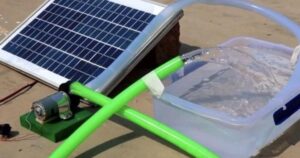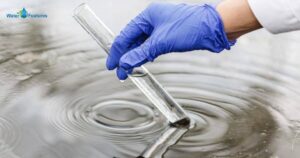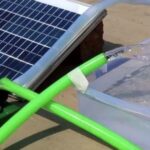When it comes to using your ice maker, water quality plays a significant role in the overall taste and quality of the ice it produces. Tap water is a readily available option for most households, but is it the best choice for your ice maker? In this article, we’ll explore various water options for your ice maker, including distilled water and bottled water. We’ll also discuss the importance of water filtration and scale control, and how these factors can impact your ice-making experience.
An ice maker is a handy appliance that simplifies the process of producing ice for various purposes, from cooling your favorite drinks to preserving perishables. One common question that arises when using an ice maker is, Can I use tap water in my ice maker? The answer isn’t as straightforward as you might think, and in this article, we will explore the factors to consider.
When it comes to using tap water in your ice maker, there are a few things you need to take into account. While tap water is generally safe for consumption, it can vary in quality depending on your location. In some areas, tap water may contain impurities, minerals, or even a slight odor, which can have an impact on the taste and quality of the ice produced by your ice maker. So, can you use tap water in your ice maker without any concerns?
Why Filter Water for Your Ice Machine?
Water filtration is a crucial consideration when using your ice maker. While tap water is generally safe to drink, it may contain impurities, minerals, and contaminants that can affect the taste and clarity of your ice. Using filtered water in your ice machine can help address these issues. But why should you use a filter for your ice machine?
Filtering water for your ice machine is essential, especially if you’ve ever encountered the frustrating issue of hot water coming out of your cold tap. It removes bad stuff from the water, making your ice taste better. It also stops minerals from sticking to your machine, keeping it clean and working well.
How does ice filtration work?
Water filtration for your ice machine typically involves passing water through a filter designed to remove impurities and improve water quality. These filters can remove particles, odors, and undesirable tastes, resulting in better-tasting ice.
Ice filtration is a simple process. It’s like giving water a good scrub before freezing it into ice cubes. Special filters remove tiny bits of stuff you don’t want in your ice, like dust and tiny particles. This makes your ice cleaner and better tasting.
Why do you need scale control for ice filtration?
Scale control is another essential aspect of ice filtration. Scale refers to the buildup of minerals, such as calcium and magnesium, in your ice maker. If left unaddressed, scale can lead to decreased ice production and potential damage to your ice maker.
Using a scale control system in combination with filtration can help prevent these issues. Some filters also help with minerals. These are things in the water that can make ice cloudy or make your ice maker work less well. Filtration keeps them in check, so your ice stays crystal clear and your ice maker stays happy. It’s like a spa day for your ice!
Can I Use Bottled Water in My Ice Maker?
Bottled water is a popular choice for those looking for a convenient and potentially high-quality water source for their ice maker. Not all bottled water is the same. It’s essential to understand the various types of bottled water available.
| Pros and Cons of Using Tap Water in Your Ice Maker |
| Pros |
| Convenient and readily available |
| Cost-effective |
| Usually safe for drinking |
| Minimal additional expense |
| Suitable for everyday ice needs |
What is Distilled Water?
Distilled water is one type of bottled water that has undergone a purification process. This process involves heating water to create steam and then cooling it to condense it back into a liquid form. The result is water that is nearly pure, with most impurities and minerals removed.
Does distilled water make clear ice?
Distilled water is often touted as the best choice for making clear ice due to its purity. It lacks the minerals and impurities that can cloud ice cubes, resulting in crystal-clear ice. If you’re looking to impress your guests with obvious ice, distilled water is a great option.
Can I use spring water in my ice maker?
Spring water is another type of bottled water, but it differs from distilled water in that it comes from natural springs. While spring water is generally safe to use in your ice maker, it may still contain some minerals and impurities. The clarity of the ice produced may not be as high as that achieved with distilled water.
How Does an Ice Maker Work?
Before delving into the pros and cons of using different types of water in your ice maker, it’s essential to understand how an ice maker functions. Ice makers are typically found in refrigerators and freezers, and they work by cycling water through a series of components that freeze and release ice cubes into a collection bin. The quality of the water used in this process can significantly affect the quality of the ice.
Potential Issues with Using Distilled Water in an Ice Maker

While distilled water can result in clear ice cubes, there are some potential drawbacks to using it in your ice maker. Here are a few key considerations.
- Lack of minerals: Distilled water lacks minerals, which can affect the taste of the ice. Some people prefer the taste of ice made with water that has a balanced mineral content.
- Acidity: Extremely pure water, such as distilled water, can be slightly acidic. This acidity may impact the long-term durability of the components in your ice maker.
- Cost: Distilled water can be more expensive than tap water, and the ongoing cost can add up over time if you use it exclusively for your ice maker.
Benefits of Using Distilled Water in an Ice Maker
Despite the potential issues, there are distinct advantages to using distilled water in your ice maker.
- Clear ice: Distilled water produces exceptionally clear ice cubes, making them an excellent choice for cocktails and upscale presentations.
- Reduced maintenance: Using tap water in my ice maker, on the other hand, may result in more frequent cleaning requirements due to the minerals and impurities it contains. In contrast, because distilled water contains minimal minerals, it is less likely to cause scale buildup in your ice maker, reducing the need for frequent cleaning and maintenance.
- Consistent taste: Distilled water provides a neutral and consistent base for your ice, ensuring that it won’t introduce any unwanted flavors into your beverages.
- Health considerations: If your tap water has quality or safety concerns, distilled water eliminates those worries, ensuring your ice is made from a pure and safe source.
Frequently Asked Questions
Can I use tap water in my ice maker?
Yes, you can use tap water in your ice maker, but the quality of the tap water may affect the taste and clarity of the ice. Consider using a water filter to improve water quality.
Is distilled water the best choice for clear ice?
Yes, distilled water is often considered the best choice for making clear ice due to its purity.
Can I use spring water in my ice maker?
Yes, you can use spring water in your ice maker, but it may not produce ice as clear as that made with distilled water.
Why should I use a water filter for my ice maker?
Using a water filter for your ice maker improves water quality by removing impurities and undesirable tastes, resulting in better-tasting ice.
Conclusion
The choice of water for your ice maker depends on your priorities. Tap water, while safe, may not always provide the best ice quality. Using a water filter can help address tap water’s shortcomings. Distilled water is an excellent option if you prioritize clear and pure ice, although it may come with some trade-offs. Spring water is a convenient choice that falls somewhere in between. Consider your specific preferences and needs to determine which water source is best for your ice maker. Ultimately, the quality of the water you use will impact the overall ice-making experience, so choose wisely.
you opt for tap water, filtered water, or distilled water, your choice will impact the taste, clarity, and maintenance of your ice maker. So, the next time you savor a refreshing drink with ice cubes, you’ll appreciate the role of water in creating that perfect, thirst-quenching chill. Make the right choice for your ice maker, and enjoy ice that elevates your beverage experience.











